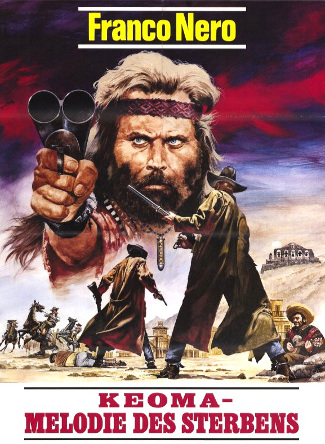 Franco Nero plays Keoma, a former Civil War hero who wanders, looking for a purpose in life.
Franco Nero plays Keoma, a former Civil War hero who wanders, looking for a purpose in life.
He returns home and finds one, saving the life of a pregnant woman named Lisa, who’s being shipped off to an old mine to die of the plague, even though she’s not sick yet.
Keoma discovers that’s just one of the things that’s gone wrong in the town near his former home.
It’s now run by a man named Caldwell. He bought the mine. He’s been buying up all the land.
And you don’t leave his town unless you’re dead. Or dying of the plague.
Problem is, squaring off against Caldwell and defying him by protecting Lisa, also puts him at odds with the three Shannon boys, Butch, Lenny and Sam.
And they’re his half-brothers.
But in Keoma’s mind, “we all have the right to be born,” and that includes Lisa’s child.
Brilliant, especially since it was made at a time when the trend in Spaghetti Westerns was comedy or parody.
Woody Strode plays George, a black man who taught Keoma color doesn’t matter. He’s now a drunk because he’s come to realize how little freedom means.
William Berger is William Shannon, the man who raised Keoma as a son, and is forced to choose between protecting him or his three “real” sons.
The presence of the witch who trails Keoma gives the film a mystical air. So do flashback sequences that often occur while the present day actors are still on screen.
The big shootout in town is wonderfully choreographed. Add a haunting score and you have one of Spaghetti’s best, not to mention one of its most original.
Directed by:
Enzo Castellari
Cast:
Franco Nero … Keoma
William Berger … William Shannon
Olga Karlatos … Lisa
Woody Strode … George
Orso Maria Guerrini … Butch Shannon
Antonio Marsina … Lenny Shannon
Joshua Sinclair … Sam Shannon
Donald O’Brien … Caldwell
Gabriella Giacobbe … The Witch
Leonardo Scavino … Doctor
as Leon Lenoir
Also with: Wolfango Soldati, Victoria Zinny, Alfio Caltabiano, Massimo Vanni, Giovanni Cianfriglia, Franco Ukmar, Antonio Basile, Roberto Dell’Acqua, Riccardo Pizzuti, Giovanni Ukmar, Sergio Ukmar, Roberto Messina, Giglio Gigli, Armando Bottin, Augusto Funari, Pierangelo Civera, Sergio Ruggeri, Domenico Cianfriglia, Angelo Ragusa
aka:
Desperado
Django Rides Again
Django’s Great Return
The Violent Breed
Keoma: The Avenger
Score: Guido De Angelis and Maurizio De Angelis
Songs: “Keoma” by Sybil and Guy
“In Front of My Desperation” by Cesare De Natale
Runtime: 97 min.
Memorable lines:
Lisa to Keoma: “Why are you helping me?”
Keoma: “We all have the right to be born.”
Keoma to a Confederate soldier: “You shoot real good. At the dead.”
Keoma to William Shannon: “You used to be the strongest.”
Shannon: “The fastest. I used to be the fastest. That’s not the strongest. It just means you live a little longer. Don’t mean you’re right either.”
Keoma: “The war, I never could figure it out.”
William Shannon: “I figure after we got through slaughtering all those Indians, we thought we ought to do something generous. So we gave freedom to the black man. Now we feel good. We can go back to finish off the Indians.”
Keoma to George, questioning why he’s become a drunk: “But the war is over. You’ve got your freedom.”
George: “I found out what is was worth. That’s why I drink.”
Trivia:
Director Enzo Castellari’s other Westerns include “Kill Them All and Come Back Alone” and “Any Gun Can Play.” He was known for slow-motion death sequences, and there are plenty of them in this film.
Franco Nero and Enzo Castellari would team up again in 1994 for a film called “Jonathan and the Bears” that was marketed as “Keoma 2” in some markets. It’s about a young boy who witnesses his parents murder, is raised by Indians, then sets out to find the men who killed his parents.
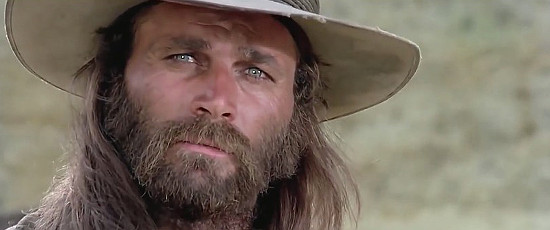
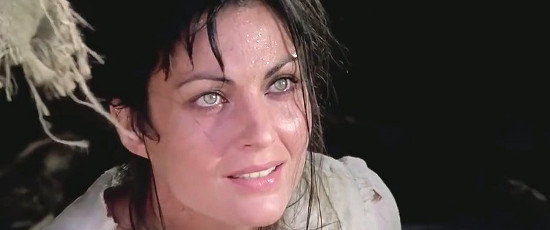

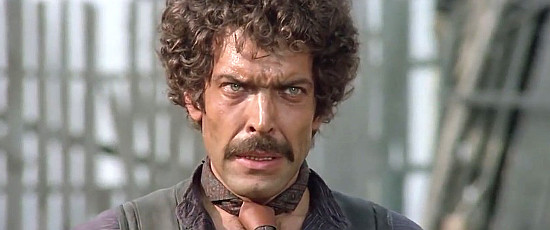
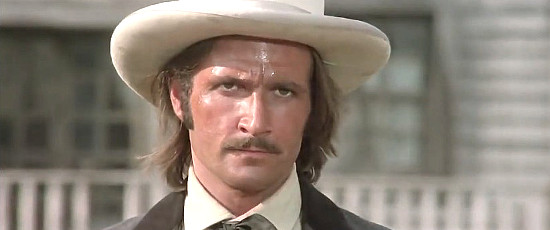
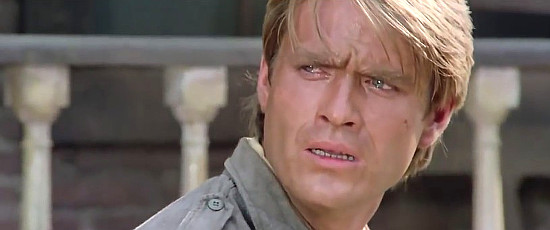
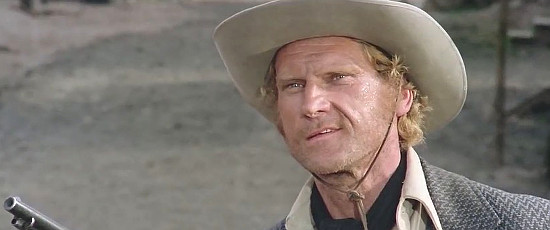
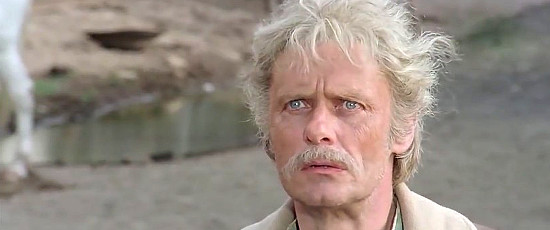
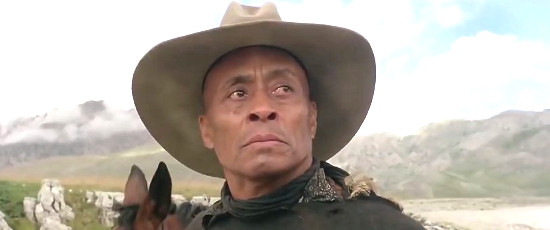
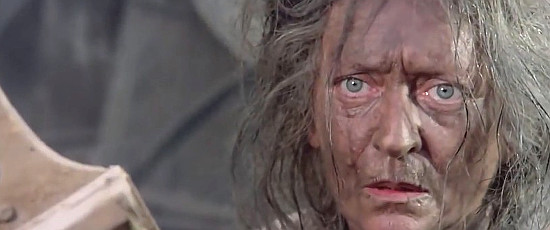
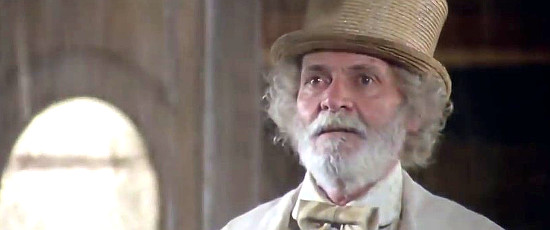
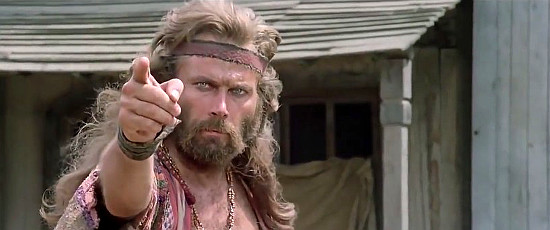
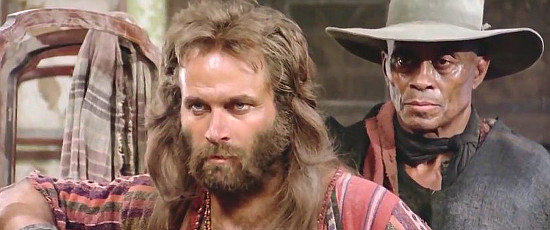
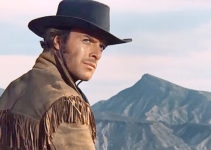
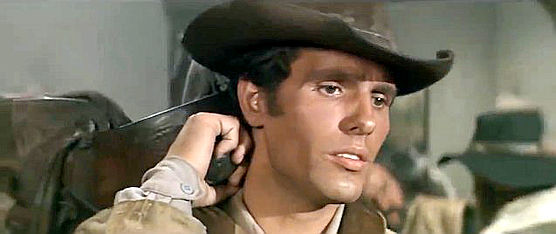
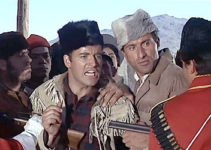
He holds power over the town by letting the plague infect the inhabitants, and since he won t let any sort of treatment be transported in. He sets up a community for those infected, and this where Keoma rescues a pregnant woman on her way there and returns her back to town.